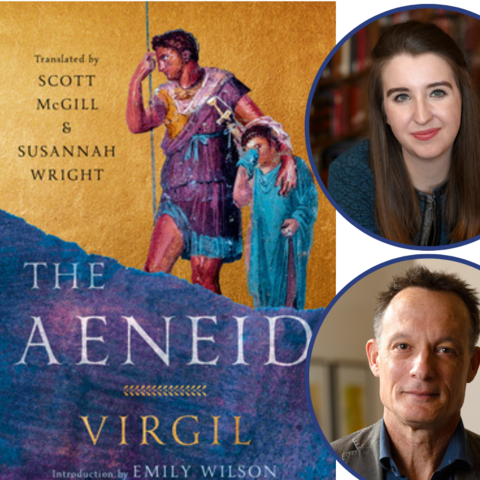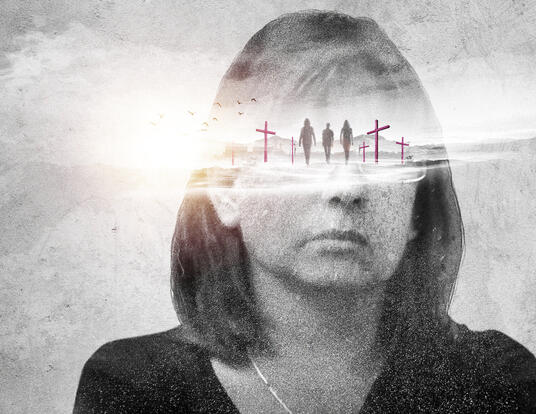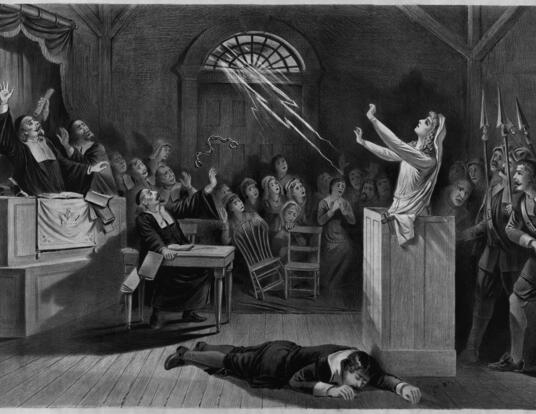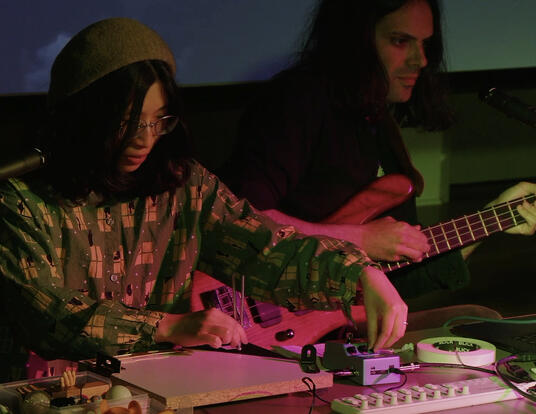The Importance of Uncertain Somethings
The Philosophy of a Teaching Fellow
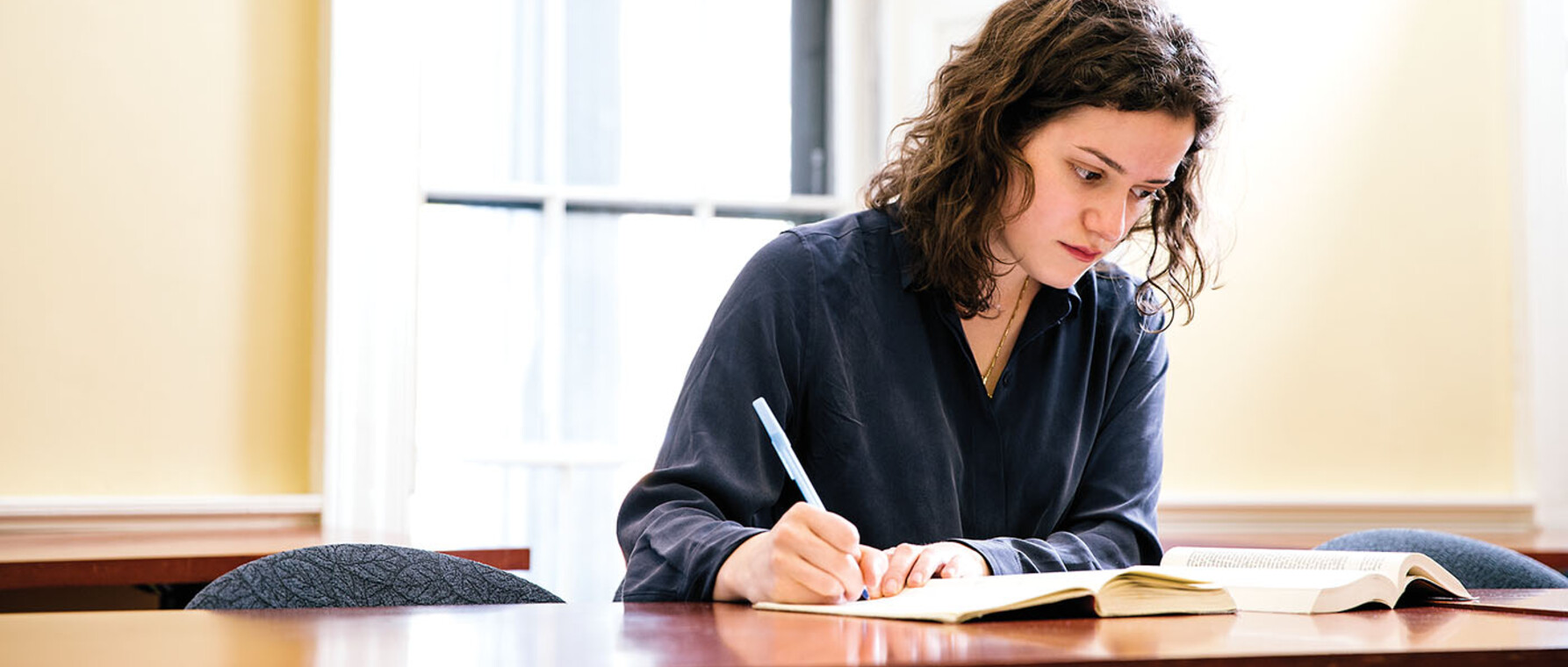
While Allan Brandt, the Amalie Moses Kass Professor of the History of Medicine and professor in the Department of the History of Science, was serving as dean of the Graduate School of Arts and Sciences, he took his high school–aged son on visits to East Coast colleges and universities. Sitting in the audience at one small, liberal arts institution, Brandt was shocked by the speaker’s attitude toward PhD candidates, whose well-being and training he advanced on a daily basis. “He said: ‘Here you will never be taught by a graduate student,’” remembers Brandt. “As though that were a bad thing.”
At Harvard, PhD students play a critical role in undergraduate teaching, and as a consequence, an integral part of the PhD student experience is their development as teachers. Scholars come to GSAS to do research and develop new knowledge, but they must also understand how to communicate their ideas to others and to undergraduates in particular. That is why several years of most PhD programs are dedicated to instruction, and why GSAS teaching fellows play a vital role in the education of Harvard College students. They conduct sections, run tutorials, recommend grades, and supervise independent study. Mentored by faculty course heads, they mature into proto-professors, guiding their students as they themselves have been guided.
Lusia Zaitseva is a fourth-year PhD candidate in comparative literature who is in the beginning stages of a dissertation on Soviet-era poetry and prose. Over four terms, she has improved as an instructor, learning as much from her students as from the professors leading the classes. By carefully reviewing feedback, she has tailored her teaching methods, in the process discovering how to be effective in creating a space for critical thinking where students are encouraged to learn from one another.
That she has been successful is clear from course evaluations. “In section, she struck a balance between ensuring everyone had an opportunity to contribute and pushing each of us to think more deeply by asking us to elaborate,” an undergraduate wrote. Another said: “She knows how to tease out the best in each of us, and to really bring the section together. As a senior, I can say she is by far the best TF I have ever had.”
For Zaitseva, growing as a teacher is a process of constant learning, one that she hopes will never end. It is also a philosophical practice, where mastery, while pursed, is not as important as holding on to “uncertain somethings.”
—Ann Hall
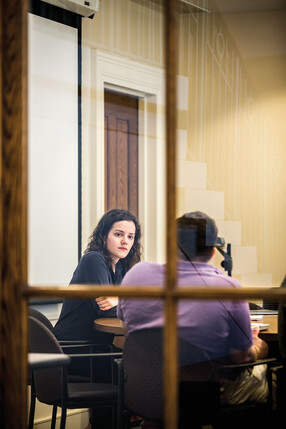
In a General Education lecture on philosophy last fall, my students read excerpts from Friedrich Nietzsche’s Beyond Good and Evil, wherein he cautions readers to never surrender their sense of doubt. Like so many philosophical tenets that have found their way into popular culture, this one seemed deceptively simple: just doubt everything. In my discussion sections, I wanted to push the idea of doubt to its limit: What would it mean to try to doubt the received truths that we hold most dear?
At the time, a video of a woman walking around New York was making the rounds of the Internet. Wearing a discrete black t-shirt and jeans, the woman featured did not seem to be intentionally drawing attention to herself, and yet over and over again we see her being catcalled and variously “verbally appreciated.” After watching the video in class, my students quickly launched into the expected debate—was she “asking for it”? Was she “too beautiful” to be representative of all women? Could it be that the men were just trying to be nice?
Eventually, we came around to one clear fault line in the video’s implicit argument—almost all of the men shown in the video were men of color. Was this video being unintentionally racist? Or was its intended point no less valid for lack of demographic diversity? These were important questions, but in some ways, my students were still missing the point. Calling their attention back to Nietzsche’s precept of doubt, I tried to get them to think critically about an idea espoused within it that many of us support, an idea we were all more or less taking for granted: feminism itself. Is feminism always “good,” I asked? Are there cases when feminism is deployed to questionable ends? And, most importantly, what would it mean to step back for a moment and doubt one of contemporary American society’s most hard-won precepts—feminism itself?
What would it mean to try to doubt the received truths that we hold most dear?
Needless to say, it was a heated discussion, and a difficult one. It’s hard for us to talk about the air we breathe. I like to think, though, that everyone in class that day will remember Nietzsche well, and, more importantly, that we will all be a bit readier to summon the courage to doubt when the need to do so arises.
While my teaching assignments at Harvard have ranged from philosophy to Bollywood cinema and Russian literature, finding a way to engage with each and every student and give the student a sense of investment in the material has remained a constant goal of mine.
Connecting with students doesn’t just happen in the classroom, though. During faculty dinners across the university, I have learned about their political campaign work, their activism, their aspirations as entertainers, and more. I try to draw on these interests in the classroom as much as possible. This past semester, while leading two discussion sections of a lecture on 19th-century Russian literature, I had the pleasure of seeing how my students found ways to make the rich course material their own: An art history concentrator wrote a wonderful essay on iconography in Dostoevsky’s The Idiot, a social studies student on social determinism in Turgenev’s Fathers and Children, and a Lampoon writer on humor in Gogol’s Dead Souls. When my students are as engaged as this, I invariably learn from them as much as the other way around. Watching them grapple with the fundamentals of close reading, argumentation, and clear writing also serves as a helpful reminder of these tenets in my own reading and writing. As the texts I engage with get harder and the scope of my own thinking broader, this is a reminder whose value I can’t stress enough. Our students in the humanities may learn the bulk of the subject matter from the professor, but I think they learn how to learn largely from graduate students. We are not yet such hardened academics that we don’t remember what it’s like to learn about Sigmund Freud’s theory of trauma or read Tolstoy for the first time.
And as we learn from one another, my students and I are both learning from the professor, albeit in different ways. Teaching last semester in the 19th-century Russian literature course mentioned above, I deepened my understanding of a genre (the novel) and a time period (the 19th century) that fall outside my usual course of study (20th-century poetry). But just as important, I also became a more effective teacher. Drawing on lessons learned from previous semesters, I had my students write weekly discussion postings so I could gauge and increase their engagement with the material before section and better draw them into discussion with one another. I also refined my approach to providing written feedback, focusing on being more concise and more effective for both their sakes and mine. Moreover, in the level of support, responsiveness, and kindness I enjoyed from the professor for whom I taught, I also learned by example how I hope to treat the graduate students who may one day in turn work for me.
As I continue to teach, I look forward to deepening my understanding of different time periods, genres, disciplines, and traditions. I hope to keep teaching courses I myself would want to take. I also hope to become better and better at teaching. And while I aspire to gain a certain sense of mastery over that challenging process, I hope my students will never cease to surprise me. Indeed, if the feeling of learning from my students ever faded, I would question my involvement (and investment) both with my students and with the timeless texts we read together. Insofar as there can be mastery over teaching, then, perhaps it is the ability to set this thing we call mastery aside and look at every class, and every student, anew.
Finding a way to engage with each and every student and give the student a sense of investment in the material has remained a constant goal of mine.
Returning to Nietzsche, it is worth noting that his admonition to doubt was aimed first and foremost at himself. “I have gradually come to realize,” he wrote, “what every great philosophy so far has been: a confession of faith on the part of its author.” It is no small task to propose, as Nietzsche did, a philosophy that undermines philosophy. Nietzsche must have had himself in mind when he wrote, “Because every drive craves mastery…this leads it to try philosophizing.” By building doubt and self-reflection into his own philosophy, he hoped to avoid a similar fate. While I have no particular aspirations as a philosopher, I too hope to learn from Nietzsche’s example: like philosophy, teaching can also be a confession of faith. As a graduate student, I am not yet sure what my “faith” is. But as Nietzsche would have it, this isn’t such a bad thing: better, as he says, to have an “uncertain something” than an “assured nothing.”
As part of the Mahindra Humanities Center’s annual (and aptly titled) “master class” series last fall, my advisor Stephanie Sandler pointed out that the central poet of my dissertation, Osip Mandelstam, viewed the concept of mastery with suspicion. As Professor Sandler noted, though, Mandelstam simultaneously craved it. So, I admit, do I. But teaching serves as a reminder that we would do well to view the concept of mastery with suspicion as Mandelstam did, and that we should learn to make good use of the many “uncertain somethings” in our own work, as well.
Photos by David Salafia
Get the Latest Updates
Join Our Newsletter
Subscribe to Colloquy Podcast
Simplecast


